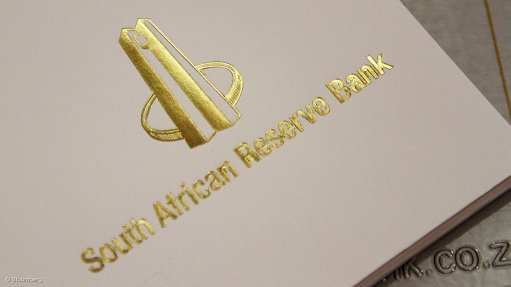
Photo by: Bloomberg
South Africa's Reserve Bank (SARB) kept its benchmark repurchase rate at which it lends to commercial banks unchanged at 6.5% on Thursday, saying the stance was appropriate given the forecast inflation trajectory and the current state of the economy.
The move follows a 25 basis point decrease at the last meeting in March of the central bank's seven-member monetary policy committee (MPC) chaired by governor Lesetja Kganyago.
"With risks and uncertainties at high levels, the MPC will maintain its vigilance to ensure that inflation remains well within the inflation target range, and will adjust the policy stance should the need arise," Kganyago told a news conference.
He said Thursday's decision was unanimous among MPC members.
The decision means commercial banks will also hold their prime lending rate to consumers steady at 10%.
The interest rate call was widely expected as the central bank balanced weak economic growth against rising price pressures.
Data from Statistics South Africa on Wednesday showed consumer price inflation accelerated to 4.5% year-on-year in April from 3.8% in March.
The statistics agency said a one%age point increase to 15% in value added tax (VAT) which came into effect in April had an impact on the CPI figure, as did a new health promotion levy in the form of a sugar tax.
"There is a degree of uncertainty regarding the likely impact of the VAT increase and the sugar tax on food, and the extent to which these increases will be absorbed by manufacturers and retailers," Kganyago said on Thursday.
"The full impact of the VAT increase may still be felt in the coming months."
An rise in interest rates at this point would have hurt the ailing economy, which the National Treasury expects to grow by just 1.5% this year.
The Reserve Bank said its own forecast for gross domestic product (GDP) growth was unchanged at 1.7% for 2018, but had been revised up from 1.5% to 1.7% for 2019.
"The domestic growth outlook remains challenging, although growth is still expected to outperform recent year outcomes," Kganyago said.
"This is despite the possibility of a contraction in GDP in the first quarter of this year, following negative growth in both the mining and the manufacturing sectors."